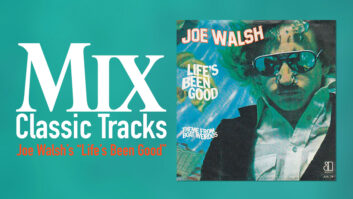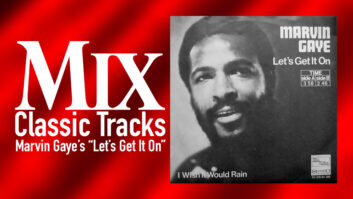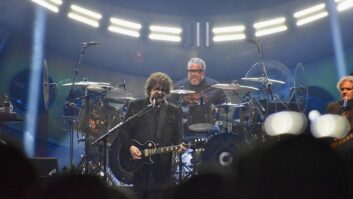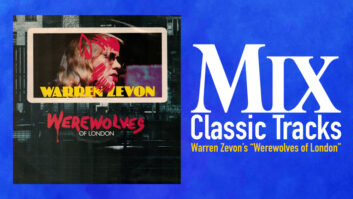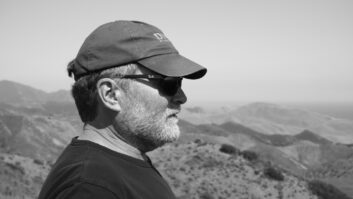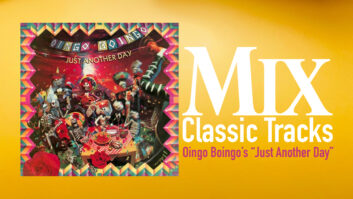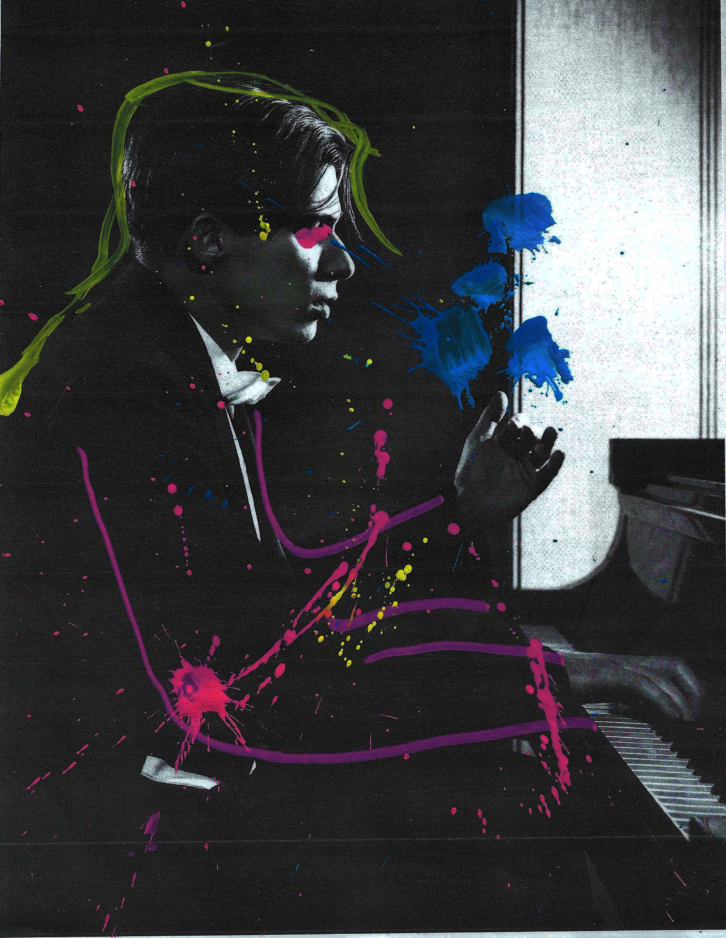
Thirty-eight years after his death, the great pianist, brilliant Bach interpreter and classical iconoclast Glenn Gould remains one of Toronto’s—and the classical music world’s—favorite sons. So, in a sense, a producer is taking some serious chances in sampling Gould’s recordings.
“He’s a national hero. There are buildings named after him and statues of him in Toronto,” says producer Billy Wild. “But when a DJ I know, DJ LRS, asked me to do a dance remix using some of his samples, I didn’t know that much about Glenn Gould.
“This was seven years ago, and there was a symposium retreat that was going to happen where a bunch of different people were going to speak, perform, and do demonstrations,” he continues. “Bob Ezrin was going to be there and Lang Lang—lots of people doing different things, all based around Glenn Gould’s vision for the future.”
Here’s where some irony creeps in, because Gould’s interpretations of Bach are held to be sacred by many. Yet, Gould famously predicted that technology would increasingly render music the domain of the listener: “In the future, the audience will become the artists and their life, the art…. they will become the uninvited guests at the banquet of the arts.”
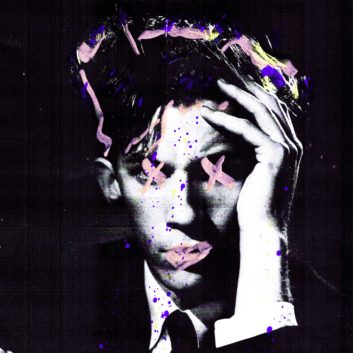
“For the symposium, we put together a 25-minute exhibition about how we used Ableton to stretch the samples [in our remix] and turn them into dance tracks,” Wild explains. “It was supposed to be a one-time thing, but I did think, ‘I can really sink my teeth into this.’ I started to learn more about Glenn Gould, and the more I researched him as an artist, I realized: All the things he was predicting? That’s how I work now.”
Not all Gould aficionados were onboard with fusing Gould’s Bach recordings with pop and hip hop beats and vocals, but the more Wild learned about Gould’s love of the studio, the controversial nature of Gould’s attitude toward classical music and his predictions for the future of mixing (“He predicted this stuff in the ’60s,” Wild notes), the more confident the producer became that nothing was off the table.
“I got in contact with the Gould estate at that point and said, ‘I have this idea about creating a modern album out of Gould samples,’” he explains. “Right away, they gave me the rights to use his name and likeness, but from there it took a long time because the rights to the music were held by Sony Masterworks, and they were not about to jump right in and let me use samples from the most iconic classical pianist of the 20th century for some hip hop songs and such.”
Wild pretty much gave up on the project coming together, but he kept playing with the samples and he created a mix tape—an underground collection that he shared online for free—and was pleasantly surprised by the positive feedback. He kept thinking, how do we make this an album?
His way in came when the Glenn Gould estate was purchased by Primary Wave, a company that manages the legacy catalogs of Bob Marley, John Lennon and others. Primary Wave was onboard with Wild’s ideas, and they began the process of clearing the samples.
“Once we got approval, we were off to the races,” Wild recalls. “But then the world stopped because of Covid and we were told the album would be delayed until 2021. But then, for whatever reason, things changed again and Sony called me to say they had an opening in October. So, we were back on.”
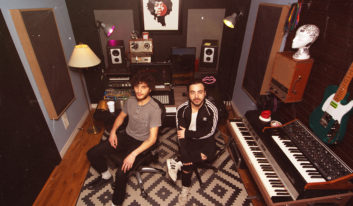
When Wild first started experimenting with Gould samples, he had been on staff in Toronto’s Hive Studios, but by the time he had the okay to begin production on Uninvited Guests, he and his current production partner Gabe Pick (also a Hive alumnus) had their own studio, Division 88 (also the name of their record label) in the basement of a gallery in Toronto’s Kensington Market arts district. Wild and Pick co-produced and engineered the album tracks from samples that Wild had previously loaded and cleaned up in Ableton.
Two of the nine songs on the album—“Gettin’ That” (feat Cheif Awuah) and the instrumental “Redlight”—came directly from Wild’s free mixtape, but for the rest, the pair started fresh. In an instructional video that he made with Ableton (watch at mixonline.com), Wild explains that every Gould recording first had to be broken down in MIDI to separate Gould’s left hand (bass notes) from his right (melody). In the video, Wild then demonstrates the way he would repeat a Bach theme the way a hook works in pop music. He also showcases examples of how Gould’s playing fit so well into the project, such as the bounce in Gould’s renditions of Bach’s more playful compositions, and how nicely that bounce sits with a funky bass line and crunchy percussion. Very quickly, a classical motif morphs into a unique hip hop song.
In Ableton, Wild also turned bass notes into percussion parts, or removed the middle notes of a trill, for example, to make space for other sounds played on the studio’s Moog Sub 37, Fender Jazz Bass and Omnisphere VST.
“It’s how a lot of production is done these days, using samples and all these incredible sounds that you can warp and cut and do whatever you can think of till the cows come home,” Pick says. It’s Gould like you’ve never heard him before, but in a sense, the way Gould might have imagined.
By the time a good selection of musical beds were made, Canada began to reopen, and Wild and Pick could bring artists from their roster in to record vocals. “That’s when it became more like any other recording project,” Pick says. All the vocal chains included the studio’s AKG C414 mic, API 512 pre’s and their Empirical Labs Distressor.
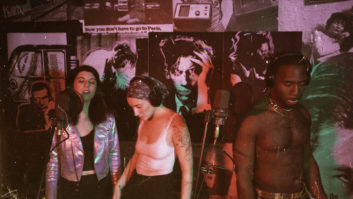
“The nature of this studio is that people are floating in and out all the time,” Pick says. “Like for the current single that’s out, ‘No Roses,’ I was in session on something else when [vocalists] Your Hunni, AARYS and Ro Joaquim were here, and I said, ‘Do you want to check out some Gould samples?’ Within two quick seconds, it felt really good! And probably within an hour-and-a-half, we had the single.”
All of the Uninvited Guests tracks were mixed in Ableton by Pick using a collection of plug-ins from Universal Audio, Waves, Soundtoys, Slate and FabFilter. “I like Slate’s virtual mixer, the Pro Q EQ for precision, the SSL G EQ for presence,” Pick says.
Wild admits that he began the project unsure whether or not he was making a record for Gould fans, but he eventually left off worrying, or even caring, about what Gould purists might think about Uninvited Guests.
“When you dig into Gould’s writings, you realize he was one of the first classical musicians to implement splicing of his recordings,” Wild says. “At the time, people thought it was blasphemous that he would dare to cut two different performances into the same piece. But he argued, ‘So, does that mean a movie director should shoot the whole movie in one shot?’
“So in that spirit, we disregarded Glenn Gould fans. This album isn’t for them. But for people who have little to no idea who he is—whether they’re into rap or dance or trance or hip hop or pop—this is for that new audience. It has way more to do with Glenn Gould’s world view than with his music.”
